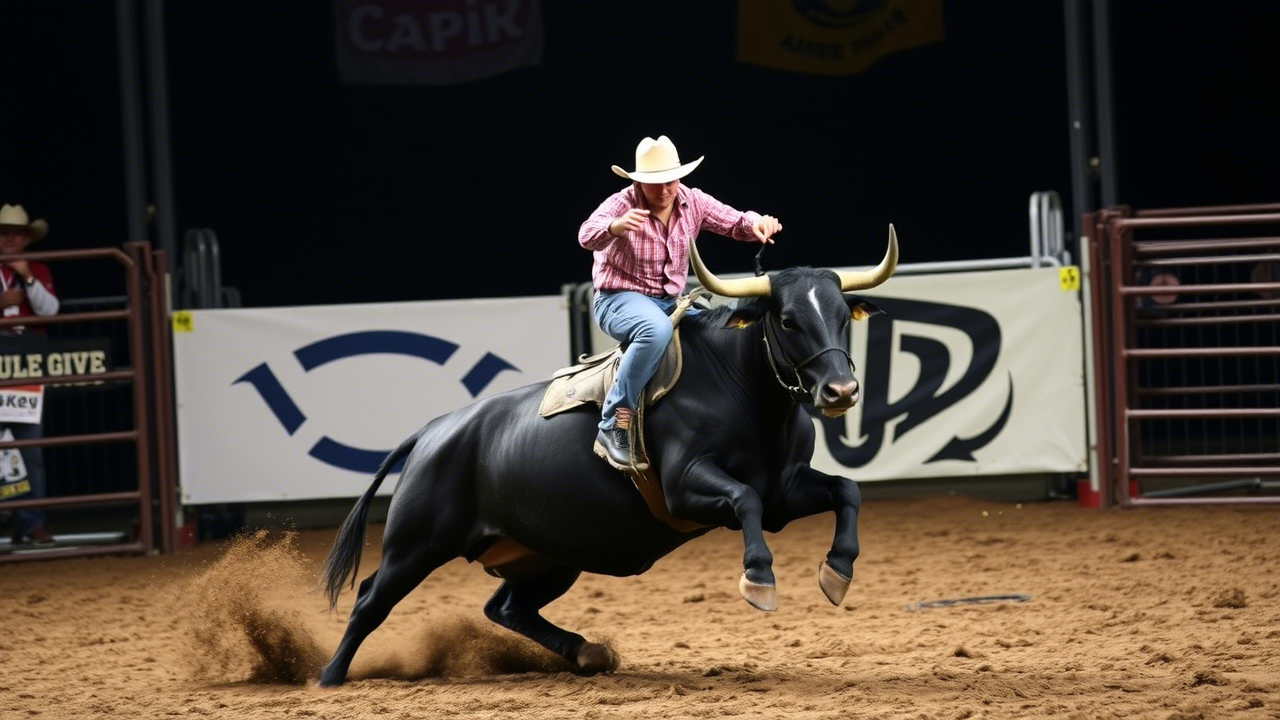How Safe Is Bull Riding? Bull riding has a 1 in 15 injury rate – but helmets, vests, and new technology make it safer than ever. See 2025 safety statistics, fatality risks, and how professionals are reducing risks.
Table of Contents
Is Bull Riding Safe? The Short Answer
Bull riding is extremely dangerous but can be survived with proper safety equipment and training. While it has a 1 in 15 injury rate per season, modern helmets, vests and medical protocols have reduced fatalities by 67% since 2010.
2025 Bull Riding Safety Snapshot
| Risk Factor | Statistic | Compared to Other Sports |
|---|---|---|
| Injury Rate (Per 1,000 Rides) | 1,440 | 10× higher than football |
| Career-Ending Injuries | 3.2% of riders | 8× higher than hocke |
| Fatalities (1989–2025) | 0.17% | Lower than BASE jumping (1.5%) |
| Safety Gear Effectiveness | 67% fewer severe injuries | Thanks to helmets & vests |
Source: PBR Medical Report 2025, CDC Rodeo Injury Data
Bull Riding’s 4 Biggest Dangers (And How Riders Survive)
1. Head Injuries & Concussions (25% of Injuries)
- Danger: High-speed falls and bull horns cause skull fractures and brain trauma.
- Safety Fix: ASTM-certified helmets reduce head injuries by 67 percent.
- 2025 Rule: Mandatory for all PBR riders under 25 years of age.
2. Broken Ribs & Organ Damage (32% of Injuries)
- Danger: A 2,000-lb bull’s kick = car crash-level force.
- Safety Fix: Kevlar vest absorbs 80% of impact.
- 2025 Tech: New smart vests alert medics to internal bleeding.
3. Spinal Cord Injuries (12% of Accidents)
- Danger: Violent whiplash can cause paralysis.
- Safety Fix: Padded Arena Walls + Spectra Shield Vest.
- 2025 Protocol: Immediate spinal immobilization for hard falls.
4. Horn Punctures (8% of Injuries)
- Danger: Bull horns exert a force of 106.3 kN (like a car crash).
- Safety Fix: Carbon Fiber Face Guards (coming in 2026).
How Safe Is Bull Riding Compared to Other Sports?
| Sport | Injury Rate (Per 1,000) | Fatality Risk | Safety Gear Used? |
|---|---|---|---|
| Bull Riding | 1,440 | 0.17% | Helmets, vests |
| Football | 140 | 0.01% | Pads, helmets |
| Hockey | 108 | 0.02% | Full padding |
| BASE Jumping | N/A | 1.5% | Parachutes only |
Source: Extreme Sports Medicine Journal 2024
Key Takeaway: How Safe Is Bull Riding? Bull riding is riskier than football or hockey but has fewer deaths than BASE jumping.
How Pro Bull Riding (PBR) Makes It Safer
✅ Mandatory Safety Gear in 2025
- Helmets (ASTM-certified) – 92% adoption
- Protective Vests (Kevlar/Spectra) – 100% required
- Mouthguards – 74% use (prevents dental trauma)
✅ Rule Changes That Save Lives
- No re-rides for concussed riders
- 8-second replays to verify safe dismounts
- “Rank” bulls banned (too unpredictable)
✅ Faster Emergency Response
- On-site trauma teams (EMTs & surgeons)
- Air ambulances at major events
- 30-second response time for critical injuries
Can Bull Riding Be Made Safer? Future Tech
- Smart Helmets: Sensors detect concussions instantly.
- Exo-Suits: Lightweight armor reduces impact force.
- AI Bull Tracking: Predicts bucking patterns to warn riders.
“Today’s bull riding isn’t safe – it’s safer. Gear turns deadly falls into survivable ones.”
– Dr. Tandy Freeman, PBR Medical Director
Should You Try Bull Riding?
- For professionals: Still dangerous, but survivable with proper training and equipment.
- For amateurs: Not recommended – most injuries occur to beginners.
- For fans: Watching is safer than ever thanks to strict safety rules.
Final Verdict: Bull riding will never be “safe,” but smart riders minimize the risks with helmets, vests, and training.
